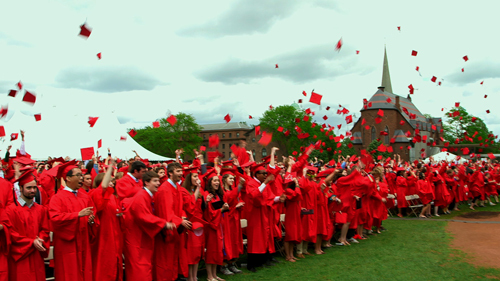
These are some of the questions you’ll find yourself pondering about higher education as you watch Andrew Rossi’s new film, Torre d'avorio, now in cinemas. OECD data shows that tuition levels in the US have become a class of their own. “It seems hard to see how these costs relate in meaningful ways to the value that students obtain,” commenta Andreas Schleicher.
We live in the age of disruptive innovation. An age in which digital technology has the potential to bring down the cost of higher education and make it more accessible than ever before. I asked Michael Horn and Anthony Carnevale (who appears in the film) to join us in Il Global Cerca Education today to talk about the future of higher education. Michael Horn is the co-founder of the Clayton Christensen Institute, and executive director of its education program. Tony Carnevale is Director and Research Professor of the Georgetown University Center on Education and the Workforce.

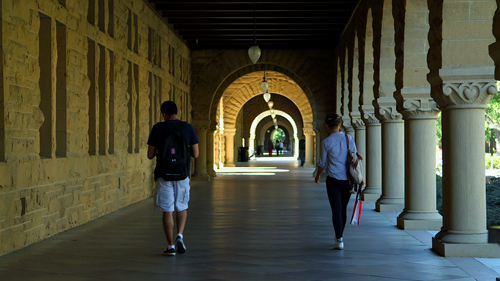
Students from Asia and the rest of the world flock to our top American Universities. Many believe we have the best higher education system in the world and they are willing to pay for it. What does this mean for the continuing demand for places at US Colleges? What does it indicate about the strengths of these institutions?
Michael Horn: The rise of the upper-middle class in Asia has created significant demand for elite higher education. This is a good thing for many U.S. universities in the short to medium term, and is helping to sustain many. In the longer term, tuttavia, perché gran parte della educazione tradizionale americana superiore si fonda sulla limitazione di accesso e la promozione selettività — thereby keeping a limit on the number of seats available — c'è una buona probabilità che le istituzioni tradizionali saranno in grado di tenere il passo con la crescente domanda e aprire così la porta alla nascita di nuove istituzioni che possono riempire. Stiamo già assistendo a nuove istituzioni di élite come il Progetto Minerva, che offre una formazione altamente selettivo arti liberali che è molto più conveniente rispetto al tradizionale dell'istruzione superiore americana, pop up to meet this new demand. As more of these institutions emerge that are affordable and selective, it could commoditize the offerings at the top.
In the UK you can get a BA degree in 3 years versus 4. Is that one solution you could see working in the US as a way to cut costs?
Michael Horn: Moving to a 3-year degree as opposed to a 4-year degree certainly saves students money, although for some institutions, it would represent lost revenue. Anche, although many institutions offer a 4-year program today, students often take 6 years to graduate, o molti sarà presente per molti anni e mai laureato. In altre parole, il problema è molto più complicata. In definitiva, passare a una laurea di 3 anni non affronta le più fondamentali sfide modello di business di aumento dei costi che affliggono i college e le università tradizionali, che deriva in parte dal conflation – e successiva somministrazione – di quello che dovrebbero essere tre modelli di business distinti rappresentati nella ricerca, insegnamento, e gli aspetti di networking di un'università, così come la successiva corsa agli armamenti per salire la classifica di prestigio.
Uno sviluppo che sembra più interessante è l'emergere di upstart in linea, gradi basati sulla competenza che fanno tempo a Credential, una variabile, e di apprendimento, una costante. Come si master materiale, si passa, il che significa che la lunghezza del grado è nelle mani dello studente e la rete di sostegno che l'ente mette intorno studente. Gli studenti possono completare gradi molto più velocemente in questi programmi; ei programmi – essendo focalizzato sull'insegnamento e l'apprendimento solo – sono molto più conveniente. The key point is that the focus is not on the length but instead on the actual learning.


China and India will ultimately create their own Ivy Leagues. What do we do well that they can use? What can they learn from our mistakes?
Michael Horn: Top università americane sono fari di ricerca d'avanguardia; questo è un motore che ha prodotto grandi cose per la nostra economia e contribuito ad attrarre persone da tutto il mondo. Anche se certamente sfide per il nostro modello di ricerca, generale, i risultati sono stati impressionanti. Quello che penso la Cina e l'India farebbe bene a cercare di evitare è replicare completamente il nostro modello. Essi dovrebbero cercare di evitare una confusione di ricerca e di insegnamento sotto un unico tetto, dove le attività non devono essere interdipendenti, per esempio, so that they don’t create the cost and teaching quality issues that have resulted in the United States where research is almost always valued over good teaching.
There has been a lot of debate on the value of a liberal arts degree in a world where every industry is being disrupted by technology. Given the number of students who don’t have jobs, are we at the point where we need a task force to determine how students can acquire the skills they need to succeed in a 21st century workplace?
Tony Carnevale: Ivory Tower brings to the fore the rolling tensions growing underneath the American higher education system in an even-handed way with no ideological biases to have those tensions and issues resolved. Currently there are already numerous efforts to resolve these issues and to ensure that students have the skills. The question then lies on creating information systems that ensure students have access to the data and the tools necessary to close the skill gap.
Michael Horn: We need to create many more programs that narrow the gap between students and employers. Online, competency-based programs – like Western Governors University, Southern New Hampshire’s College for America, University Now’s Patten University, e molto altro ancora – stand to help. I’m also intrigued by programs like General Assembly and Dev Bootcamp, as well as offerings from companies like LearnUp.
I believe the liberal arts degree will continue to have a place and value in the world, but I think it will be able to be far more affordable so that many more people can consume a liberal arts education over the course of their lifetimes.

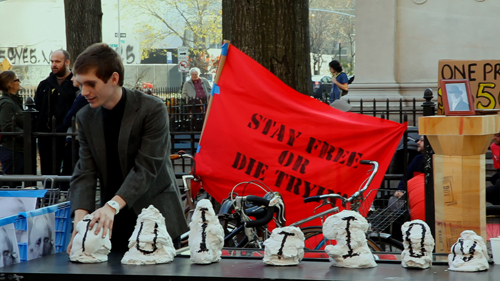
How big a role will technology play in bringing down the cost of higher education?
Tony Carnevale: Technology is the hope for many low-income students who cannot afford the more selective institutions. It’s one answer to getting costs under control due to low development and distribution costs as well as much more flexible and open access. A new MOOC course for instance can be accessed by millions of students at low costs but these courses face skepticism from employers who do not see them as reliable credentials for student preparation for the labor market.
Generale, MOOCS and other similar efforts point towards the potential of technology in the form of online learning in transforming the financial landscape of the higher education sector. Chiaramente, there will be a mix of winners and losers on both the provider and student sides. Tuttavia, getting employers to value these courses, and improving the incentives of students to enroll and complete are the first steps in potentially using these new models to lower overall costs.
Michael Horn: Technology paired with business model innovation will play a critical role in bringing down the cost of higher education. Online, competency-based programs are already showing significant promise to tackle the challenge and represent very exciting disruptive innovations focused on learning and affordability. I don’t think “the solution” will be contained in just one thing either. The unbundling of the components of the degree and the ability for students to customize their education by combining different components – online courseware from a Udacity, the brick-and-mortar co-learning space of a General Assembly, the social experience of a Habitat for Humanity perhaps – represent exciting ways to bring value to students’ lives in a variety of forms. We’re living in an exciting time, e le opportunità di estendere l'accesso ad una qualità elevata a prezzi accessibili e l'istruzione superiore potrà solo crescere negli anni a venire, anche in quanto presentano sfide alle istituzioni esistenti per tenere il passo.

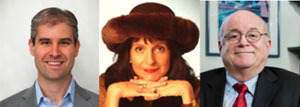
Tutte le foto sono per gentile concessione di Samuel Goldwyn Films
Nel Global Search per l'Educazione, unirsi a me e leader di pensiero di fama mondiale tra cui Sir Michael Barber (Regno Unito), Dr. Michael Block (Stati Uniti), Dr. Leon Botstein (Stati Uniti), Il professor Argilla Christensen (Stati Uniti), Dr. Linda di Darling-Hammond (Stati Uniti), Dr. Madhav Chavan (India), Il professor Michael Fullan (Canada), Il professor Howard Gardner (Stati Uniti), Il professor Andy Hargreaves (Stati Uniti), Il professor Yvonne Hellman (Paesi Bassi), Il professor Kristin Helstad (Norvegia), Jean Hendrickson (Stati Uniti), Il professor Rose Hipkins (Nuova Zelanda), Il professor Cornelia Hoogland (Canada), Onorevole Jeff Johnson (Canada), Sig.ra. Chantal Kaufmann (Belgio), Dr. Eija Kauppinen (Finlandia), Segretario di Stato Tapio Kosunen (Finlandia), Il professor Dominique Lafontaine (Belgio), Il professor Hugh Lauder (Regno Unito), Il professor Ben Levin (Canada), Signore Ken Macdonald (Regno Unito), Il professor Barry McGaw (Australia), Shiv Nadar (India), Il professor R. Natarajan (India), Dr. PAK NG (Singapore), Dr. Denise Papa (Stati Uniti), Sridhar Rajagopalan (India), Dr. Diane Ravitch (Stati Uniti), Richard Wilson Riley (Stati Uniti), Sir Ken Robinson (Regno Unito), Professor Pasi Sahlberg (Finlandia), Il professor Manabu Sato (Giappone), Andreas Schleicher (PISA, OCSE), Dr. Anthony Seldon (Regno Unito), Dr. David Shaffer (Stati Uniti), Dr. Kirsten Immersive Are (Norvegia), Cancelliere Stephen Spahn (Stati Uniti), Yves Theze (French Lycee Stati Uniti), Il professor Charles Ungerleider (Canada), Il professor Tony Wagner (Stati Uniti), Sir David Watson (Regno Unito), Professor Dylan Wiliam (Regno Unito), Dr. Mark Wormald (Regno Unito), Il professor Theo Wubbels (Paesi Bassi), Il professor Michael Young (Regno Unito), e il professor Zhang Minxuan (Porcellana) mentre esplorano le grandi questioni educative immagine che tutte le nazioni devono affrontare oggi.
Il Global Ricerca per l'Educazione della Comunità Pagina
C. M. Rubin è l'autore di due ampiamente lettura serie on-line per il quale ha ricevuto una 2011 Premio Upton Sinclair, “Il Global Ricerca per l'Educazione” e “Come faremo a Leggere?” Lei è anche l'autore di tre libri bestseller, Compreso The Real Alice in Wonderland, è l'editore di CMRubinWorld, ed è un disgregatore Foundation Fellow.
Segui C. M. Rubin su Twitter: www.twitter.com/@cmrubinworld


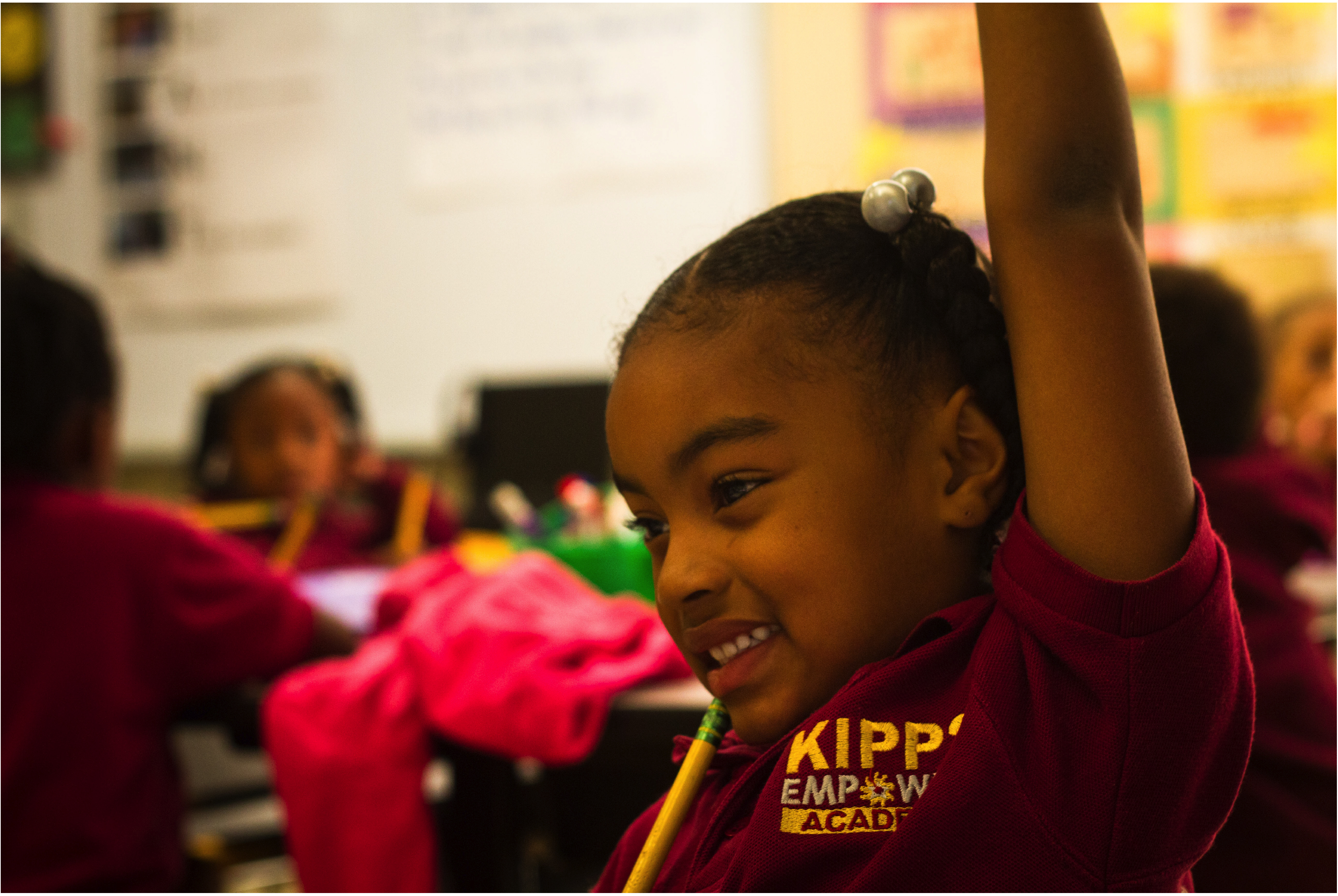


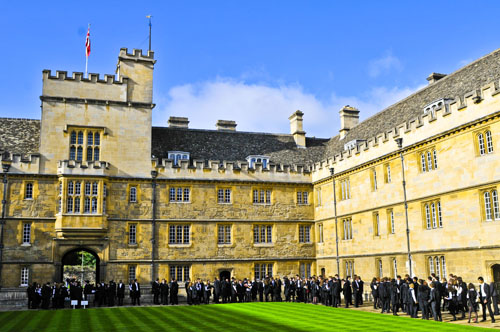
Commenti recenti